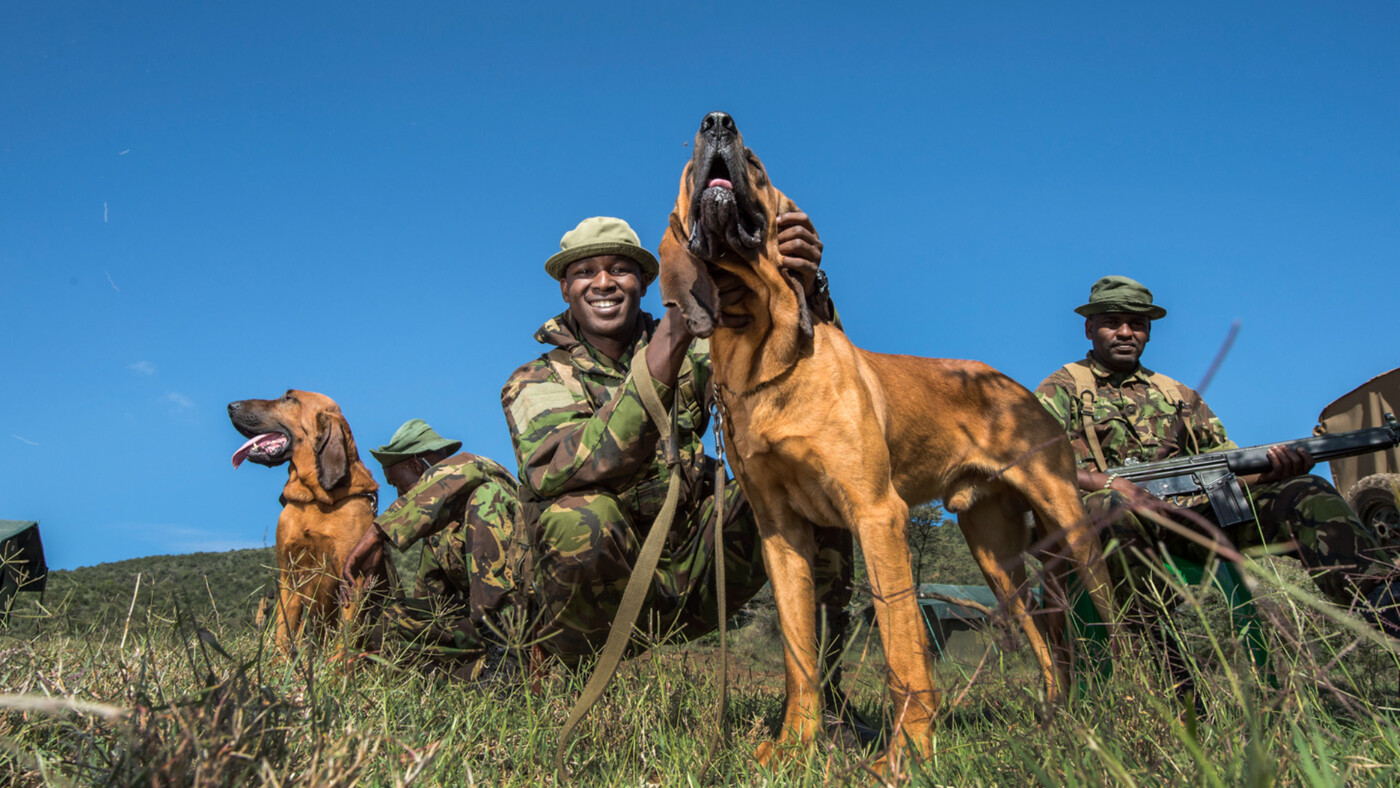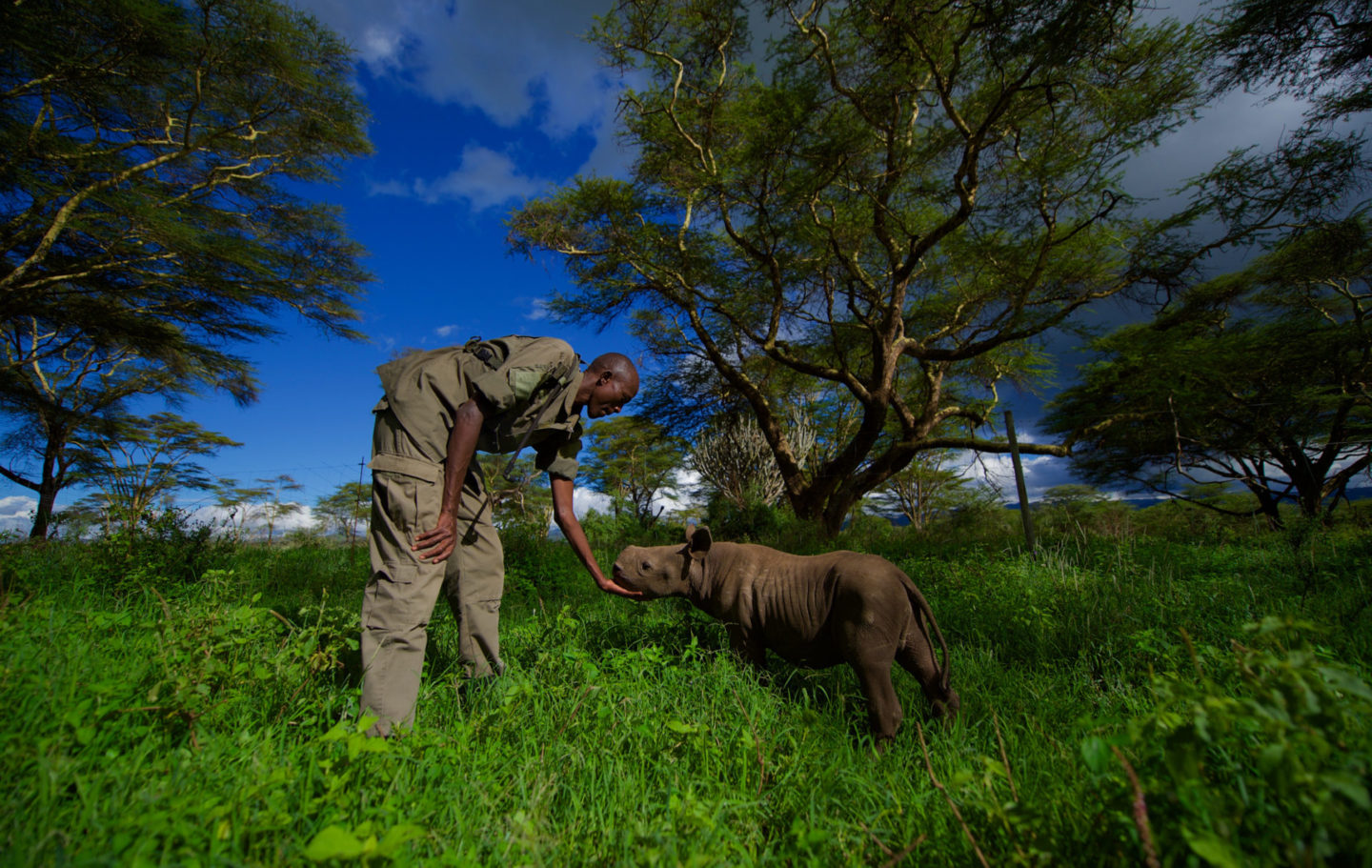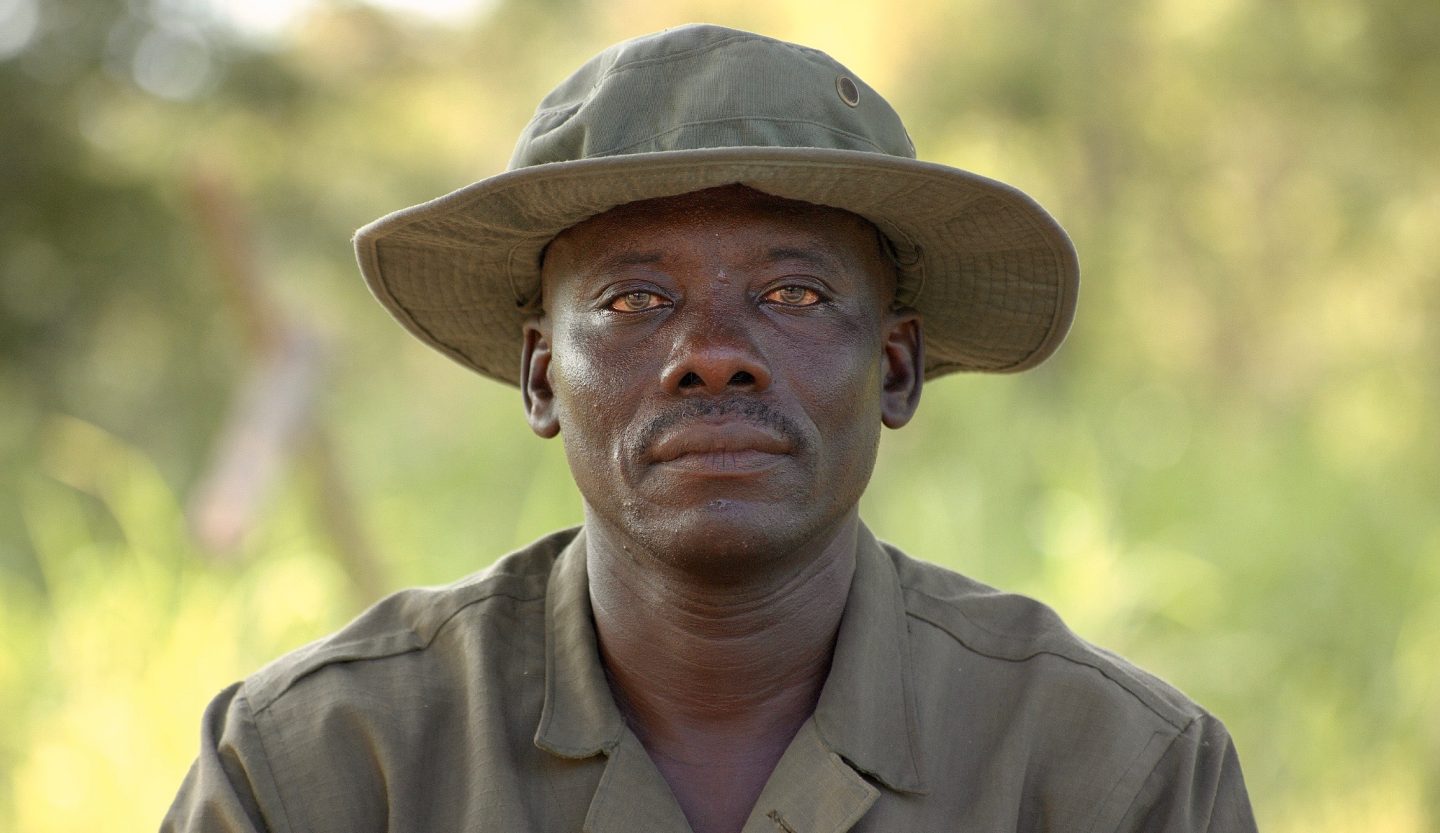
This year’s Wildlife Ranger K9 Challenge is brought to you in partnership with Working Dogs for Conservation (WD4C), the world’s leading conservation dog organisation. We asked Lauren Wendt, Law Enforcement Training Lead at WD4C, to share her insights on the remarkable role of working dogs and their crucial contributions to anti-poaching efforts.
What’s the most important contribution dogs make to anti-poaching efforts?
“A well-trained working dog has the ability to be incredibly efficient and effective at finding concealed contraband and tracking poachers, far more so than humans alone. The world of scent and odour is far broader for a dog compared to how humans primarily navigate our world through vision. Using well-trained dogs results in fewer illegal wildlife products ending up in global trade and more traffickers being held accountable for their crimes.”
What breeds do you find are the most receptive to conservation training and become the most effective conservation working dogs?
“Sporting and working breeds such as labradors, spaniels, and shepherds, or mixes thereof, are particularly efficient. But almost any dog who likes to search, loves playing with toys, is confident, resilient, and has a good work ethic can do the job.”
What is the most important component of training to ensure dogs are effective in anti-poaching work?
“In training it’s important to instil self-reliance and resourcefulness. Teaching dogs to be confident problem solvers and not to rely on the handler for the answer is an incredibly important component when training a dog to be effective in this work. Furthermore, a well-trained and confident handler is indispensable in maximising the effectiveness of the working dog.”
Can you tell us about a particular project or operation where WD4C has made a significant impact on anti-poaching efforts?
“An often-overlooked yet powerful impact these amazing dogs have is the way they raise awareness of the issue and shift perspectives in communities. By actively involving dogs in education and outreach efforts, communities become more informed about wildlife trafficking and are inspired to actively participate in finding solutions.”
“Collaborating with local communities and ranger teams in Africa is a key aspect of the organisation’s approach. WD4C has many ways to work with local communities… from starting new K9 programmes from the ground up, finding and training new dogs and handlers, to doing short-term consulting to assist with a specific challenge, our comprehensive involvement ensures that local communities are engaged and empowered in the conservation process.”
As we look towards the growing challenge of co-existence in conservation, how do you see working dogs playing a role in addressing those challenges?
“Dogs are incredibly versatile and can be trained to patrol a perimeter to keep other wildlife away, trained to bark when they see or hear something specific, alerting a human to take a specific action. Their detection abilities can also aid in identifying critical habitats, the presence or absence of species, and invasive species that pose threats to these habitats.”
Can you share a favourite success story from your work?
“There’s a remarkable incident from Conservation South Luangwa in Zambia that comes to mind. Information came in about a trafficker with a set of very large elephant tusks. This case involved many people from various agencies, including other countries, undercover officers posing as buyers collecting information on where the suspect was hiding the tusks and intelligence officers putting the case together.”
“Through good investigative work, Wildlife Officers were able to determine that the trafficker had the tusks at his home and was in fact trying to sell them. The K9 Unit with Conservation South Luangwa was called to assist with the search of the man’s home in case the tusks could not be found by Officers alone.”
“As part of the search, an 8-year-old German Shepard rescue named Rudi was brought into assist. Rudi and his handler searched the home and surrounding area late into the night. Eventually Rudi and his handler began searching the ploughed fields surrounding the house where K9 Rudi alerted his handler. Additional officers were brought in to excavate, and the tusks were found one metre underground, sealed inside a bag!”
With working dogs like Rudi playing a growing role in anti-poaching efforts, their exceptional abilities in detection and tracking have enabled a massive reduction of illegal wildlife trade.
……………………………………………………………………….
The Wildlife Ranger Challenge unites thousands across the world in a common goal: to raise vital funds for frontline conservation efforts.
With over $16 million raised #ForWildlifeRangers to date, the Wildlife Ranger Challenge seeks to increase support for the ranger workforce by widening access to essential equipment, enhanced training and protective measures. The Challenge also has a mission to be a catalyst for the development of the ranger profession by increasing recognition for the critical roles rangers play.
Please give what you can in recognition of the work these brave men, women and dogs do in the protection of earth’s natural heritage. You can find out more and donate here



